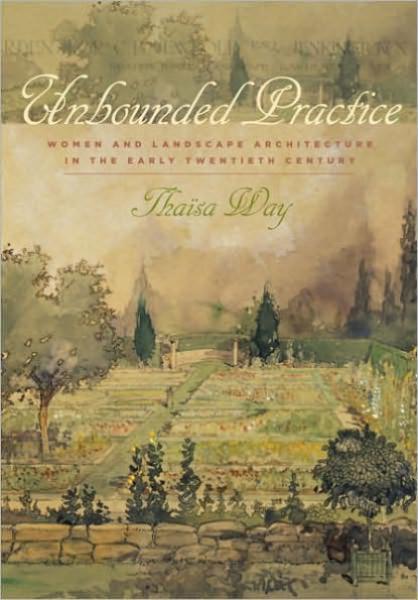Description
Women have practiced as landscape architects for over a century, since the founding of the practice as a profession in the United States in the 1890s. They came to landscape architecture as gardeners, garden designers, horticulturalists, and fine artists. They simultaneously shaped the profession while reflecting contemporary practice. It is all the more surprising, then, that the history of women in American landscape design has received relatively little attention. Thaïsa Way corrects this oversight in Unbounded Practice: Women and Landscape Architecture in the Early Twentieth Century. Describing design practice in landscape architecture during the first half of the twentieth century, the book serves as a narrative both of women--such as Beatrix Jones Farrand, Marian Cruger Coffin, Annette Hoyt Flanders, Ellen Biddle Shipman, Martha Brookes Hutcheson, and Marjorie Sewell Cautley--and of the practice as it became a profession.
Winner of a 2008 David R. Coffin Publication Grant, awarded by the Foundation for Landscape Studies
Groundbreaking and innovative.... [Way] has written a rich and meaningful overview of the defining decades of our profession that should become required reading for all students of landscape architecture.
--Landscape Architecture (01/01/0001)"[A] useful and intriguing resource that guides readers through the progression of landscape architecture and outlines the women who strived to fulfill their career goals and personal aspirations throughout this process."
--Bloomsbury ReviewUnbounded Practice will transform the accepted history of American landscape architecture as a narrative of successive male designers making autonomous design innovations. Thaïsa Way provides a nuanced account of the diverse ways in which women entered and succeeded in landscape architecture praxis. The collective contributions of this wide-ranging practice are impressive and often embodied early ecological practices and social agendas intended to foster a sense of community.
--David Streatfield, University of WashingtonThe story of American women as practitioners in the field of landscape design is one that has not been told before as completely as it is here. Way writes not just about women landscape designers but very insightfully about the landscape profession coming of age in the early twentieth century through the education and practices of both men and women. Unbounded Practice is an original and valuable work.
--Elizabeth Barlow Rogers, president of the Foundation for Landscape Studies and author of Landscape Design: A Cultural and Architectural History
Product Details
- University of Virginia Pr Brand
- Apr 21, 2009 Pub Date:
- 0813928087 ISBN-10:
- 9780813928081 ISBN-13:
- 305 Pages
- 10.1 in * 7.3 in * 1 in Dimensions:
- 2 lb Weight:




